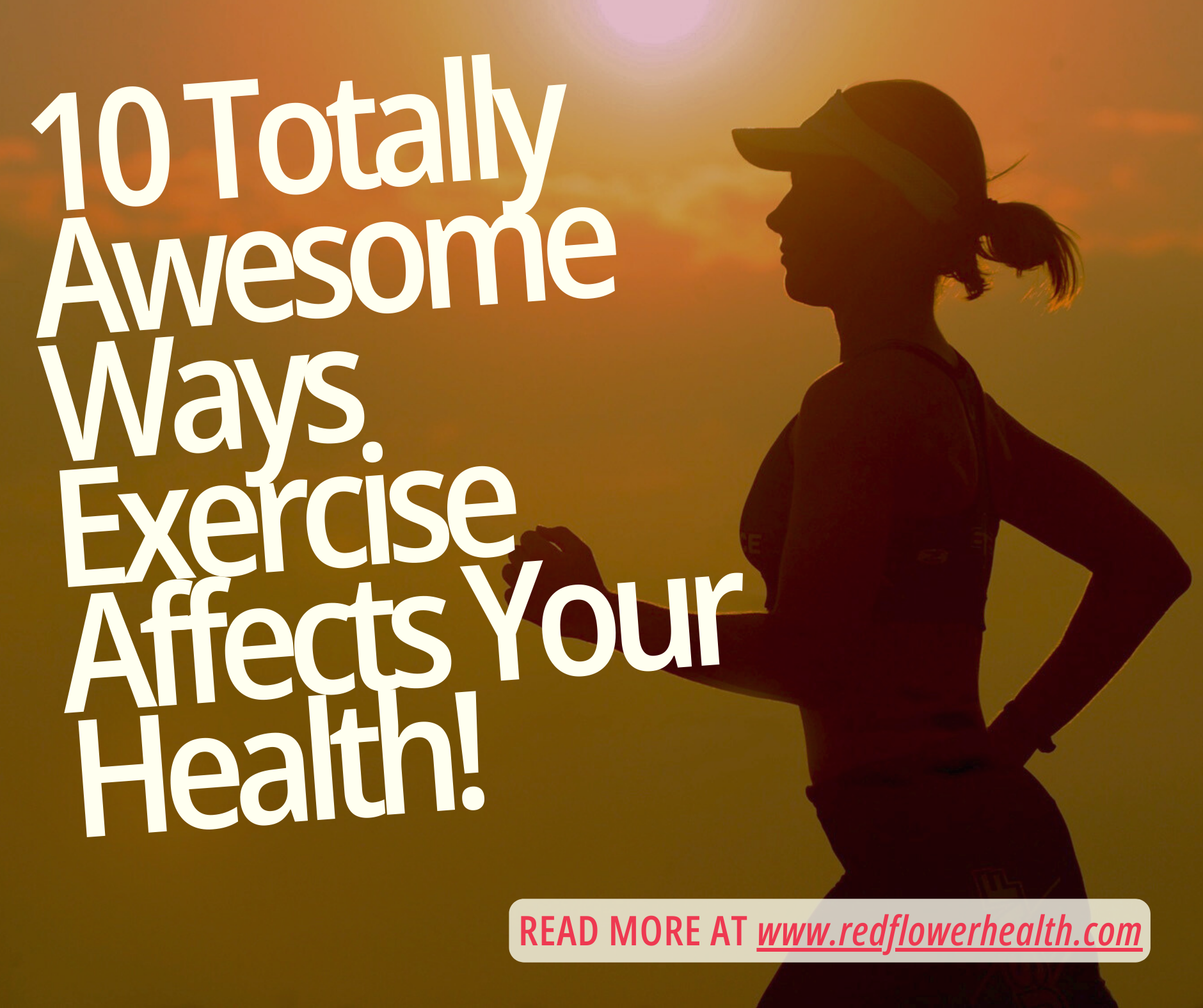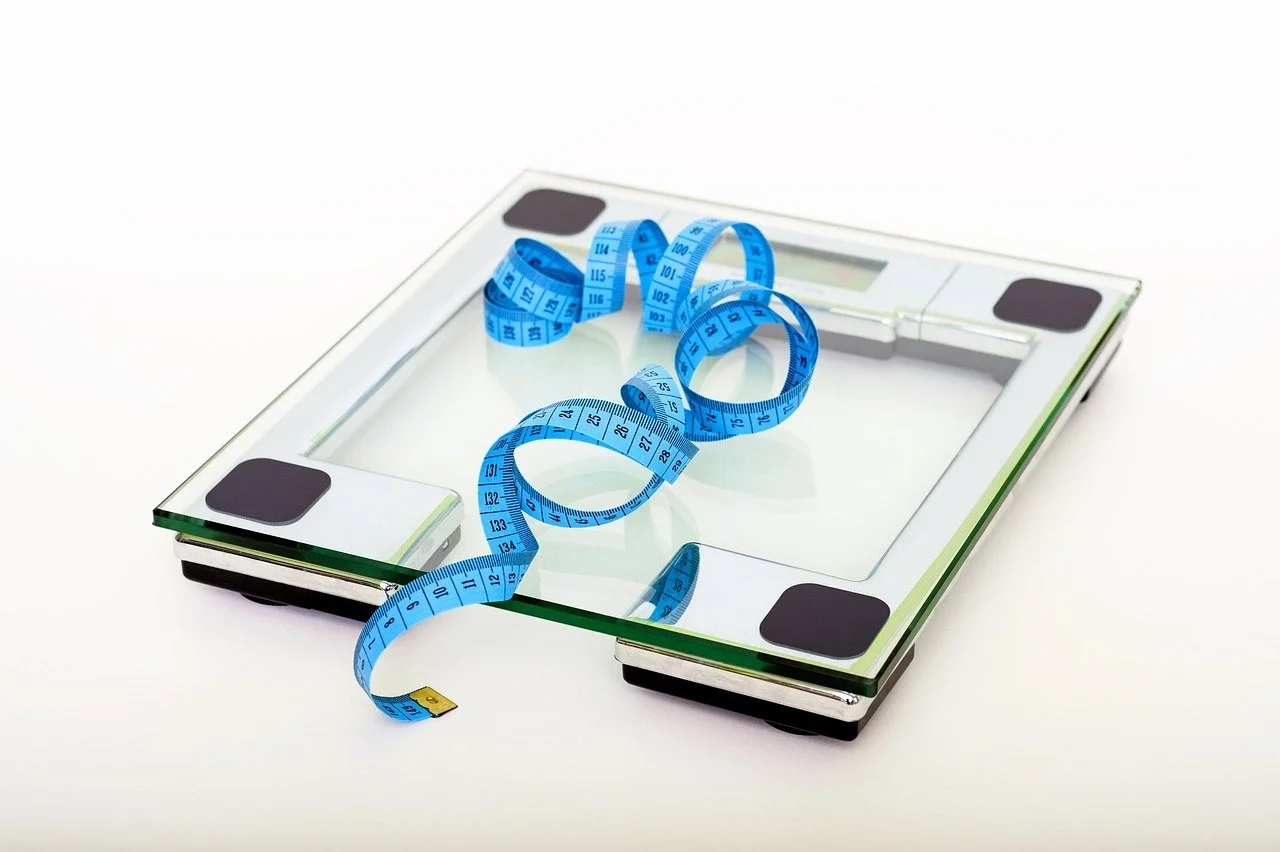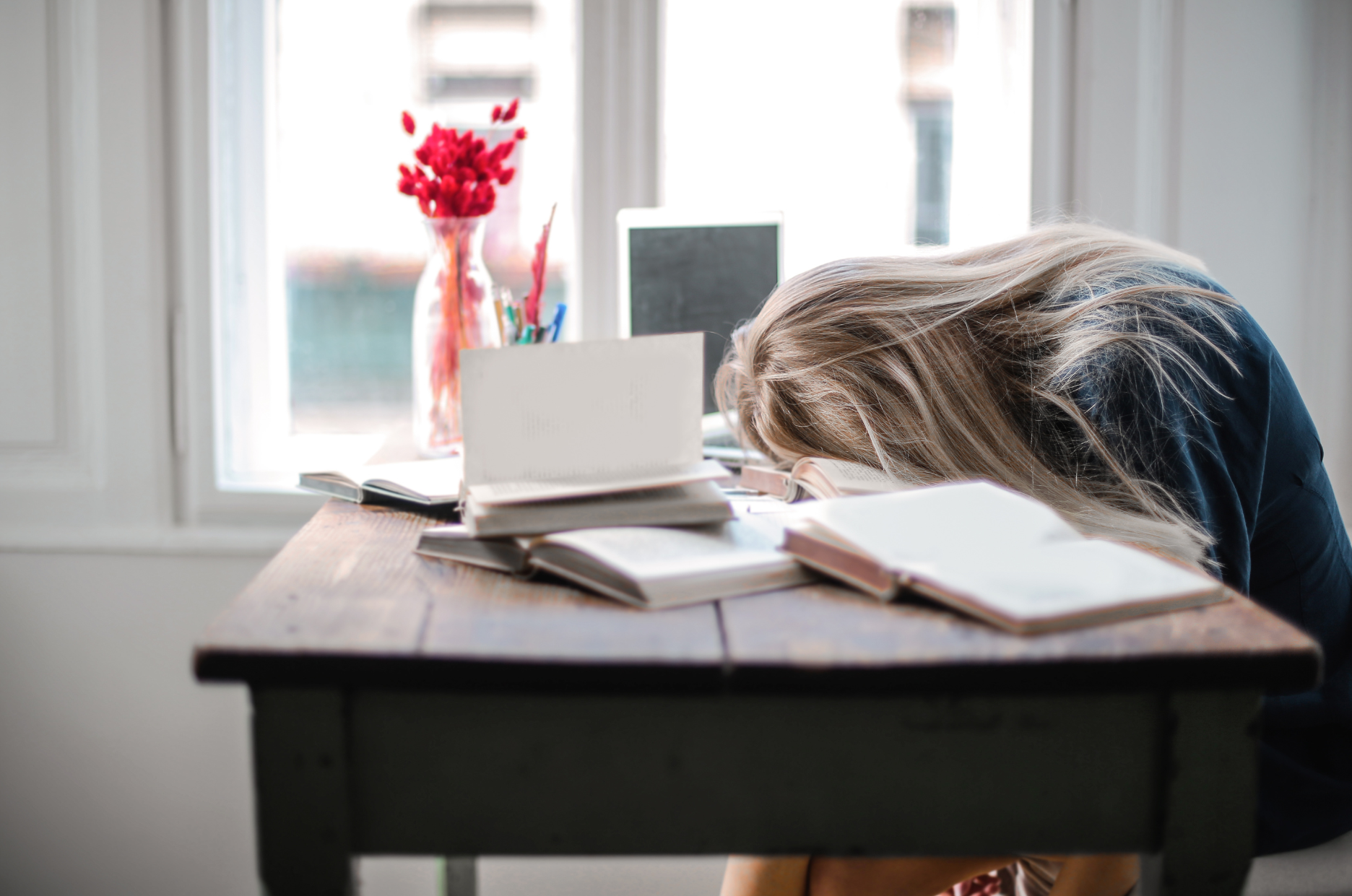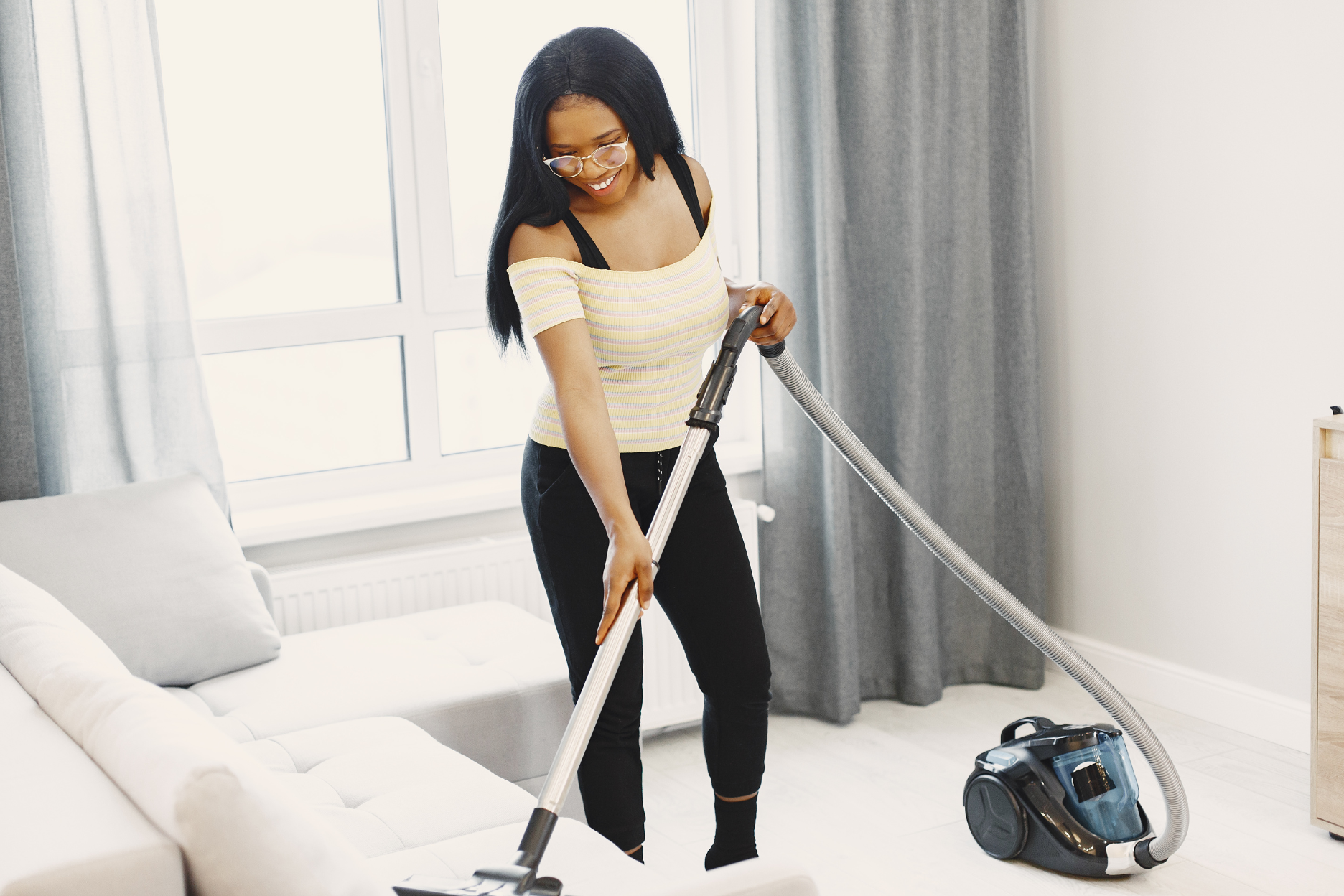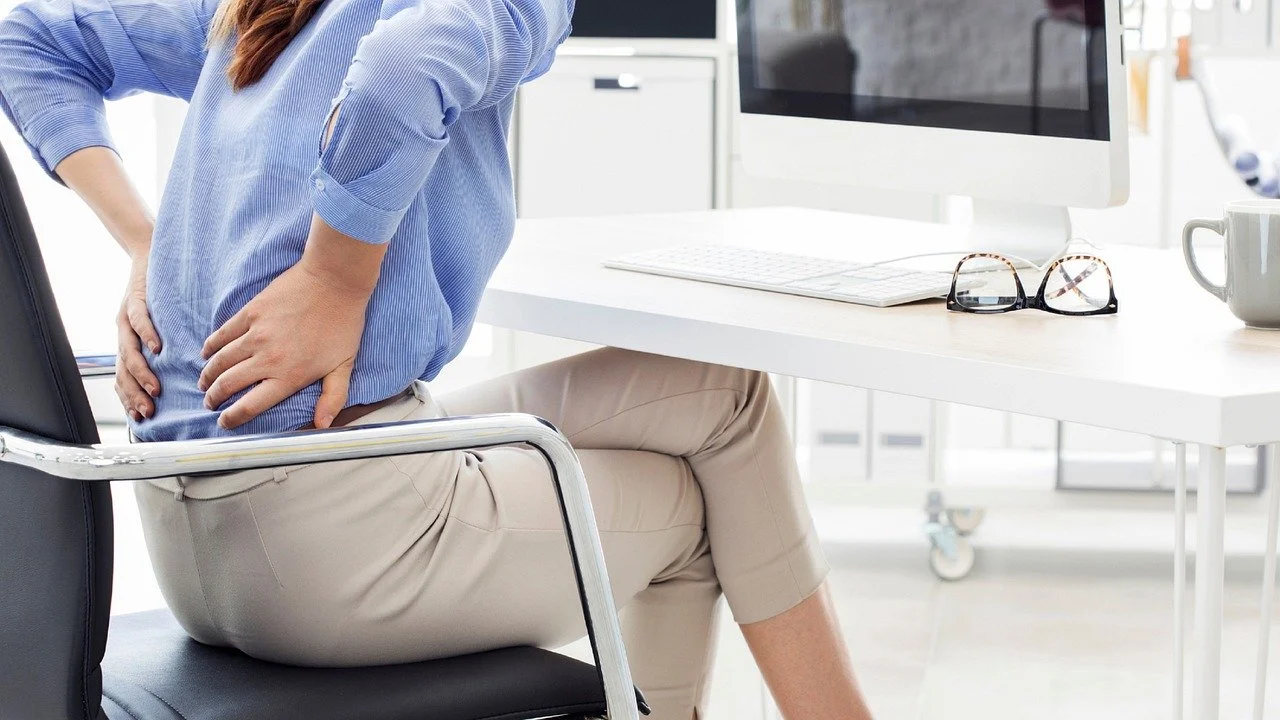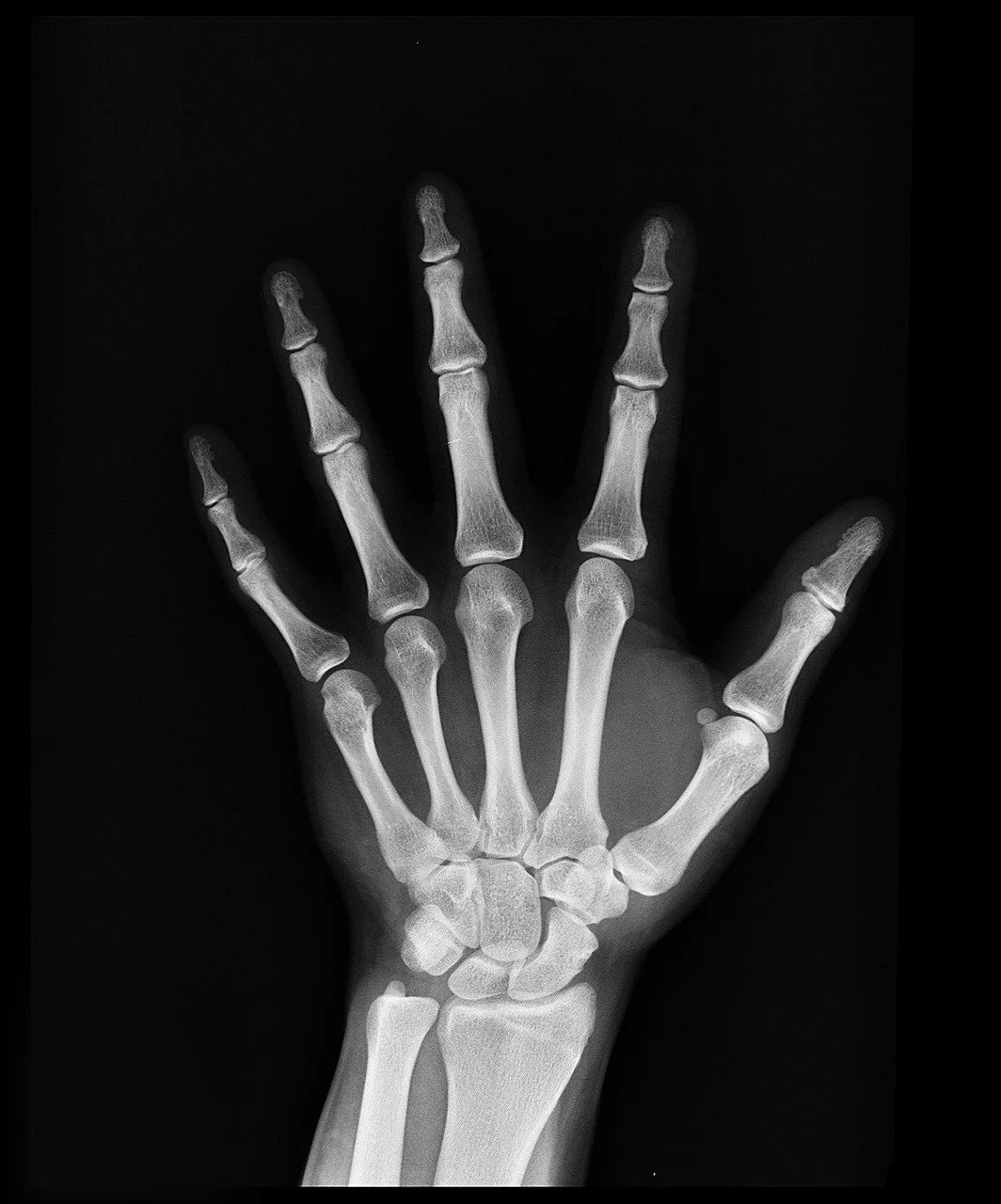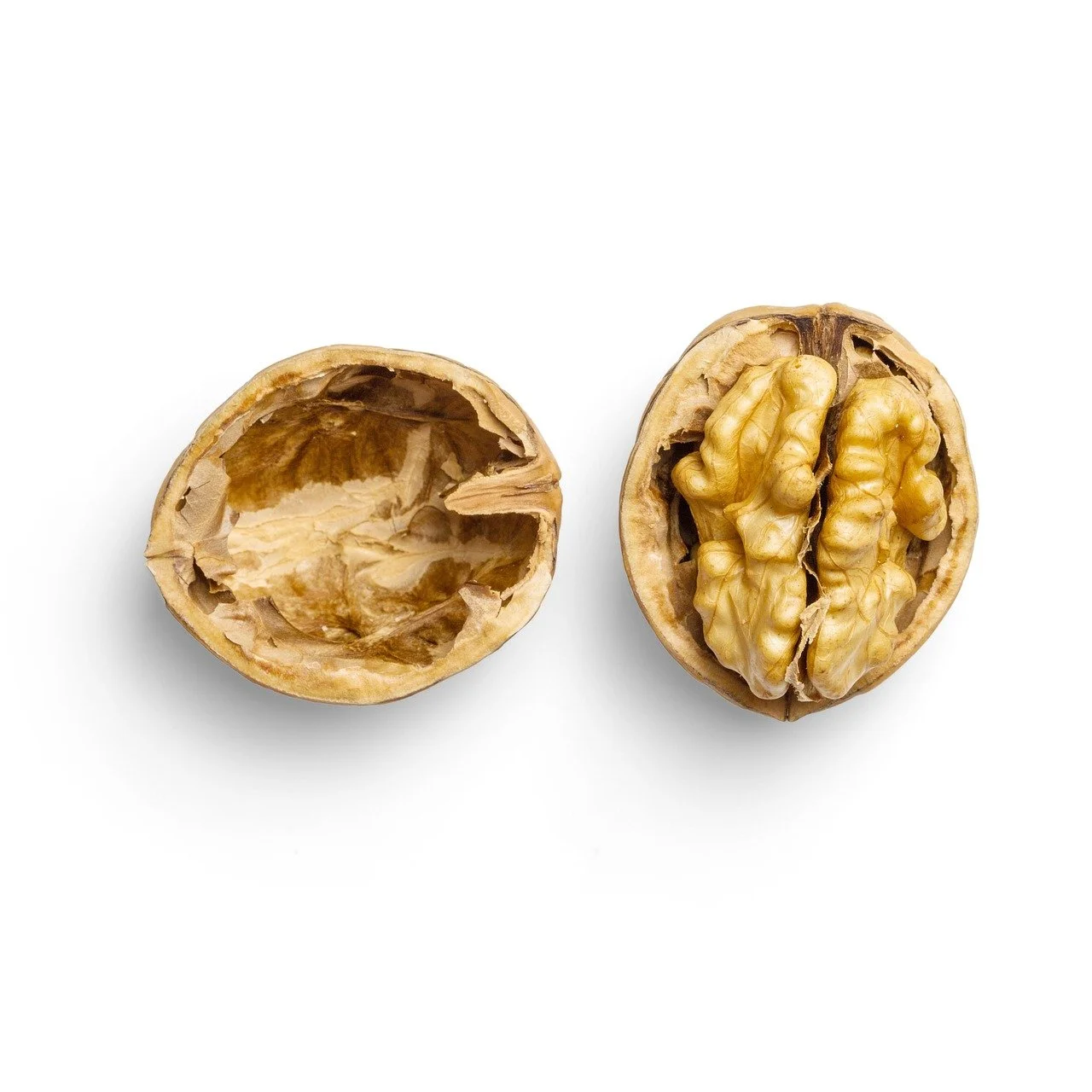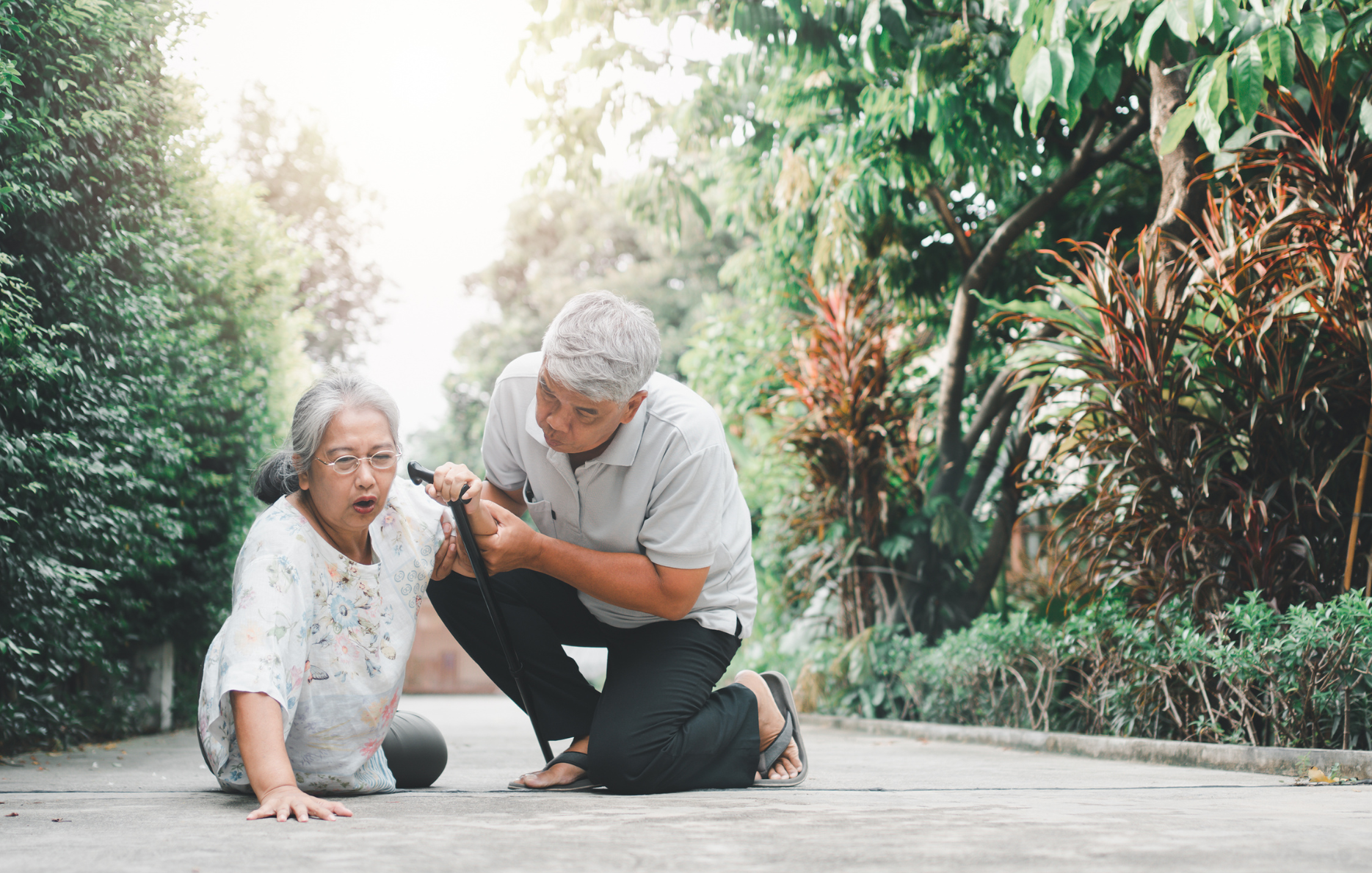10 Totally Awesome Ways Exercise Affects Your Health!
“Exercise helps us to lower stress, releases good chemicals in our brain that help us to feel happy and calm, and boosts our self-esteem!”
I don’t think it’s a secret that exercise is good for us or that it’s something we should try to do regularly. But do you know some of the specific ways exercise can help our health? I’m sure you may be familiar with many of these totally AWESOME ways exercise is beneficial. But a few of them may surprise you! Read on as a fun way to test your exercise knowledge and see if moving your body can help with a health ailment you may be struggling with!
1. Exercise helps us to maintain (or achieve!) a healthy weight.
This is probably the #1 reason most people will say exercise is good for us. But did you know that half of Americans struggle with obesity, and nearly 3 out of 4 adults are considered overweight [1]? Exercise helps us to burn calories, which helps us to reach (and maintain!) a healthy weight [2]. So if you’re someone who needs a little help with losing weight (statistics say most of us do, so no judgment!) or if you’re someone who wants to stay a healthy weight (that should include just about everyone else!), you should strive to try to move your body at least a little bit each week. We’re all in this together!
2. Exercise boosts your mood!
Now we’re starting to get into the fun stuff! But on a more serious note, 1 in 5 adults in our country struggle with mental illness [3]. (Myself included!) Exercise helps us to lower stress, releases good chemicals in our brain that help us to feel happy and calm, and boosts our self-esteem [2]! So the next time you’re feeling a little down or overwhelmed, consider going for a quick stroll or doing a little yoga sesh to lift your spirits and relax your mind.
3. Exercise combats fatigue.
As a nurse practitioner, I can vouch that fatigue is one of the top reasons patients schedule an appointment with their healthcare provider. It can often be difficult to nail down the exact cause as to why someone is feeling tired all the time. But the GOOD news is, exercise can increase your energy levels! Over time, as your heart, lungs, and muscles get more accustomed to the increased work that comes with exercise, you may feel more energized to accomplish the other things you have planned for your day! Exercise also makes it easier for your heart to bring oxygen to the muscles and organs in your body. And every part of your body needs oxygen to function [4]. So get up and move your body today!
4. Exercise improves your sleep!
Did you know that over ⅓ of us get less than 7 hours of sleep on average each day [5]? That’s a scary statistic! But if you struggle to catch some zzz’s like many of us, then don’t worry! Because exercise can help with that too! Exercise has been shown to help people fall asleep faster and get into deeper cycles of sleep, which overall improves the quality of the sleep we get [2]. Just try not to exercise too close to the time you plan to go to bed because, as we discussed in the last point, exercising right before bed may actually increase your energy and make it harder for you to fall asleep, which would defeat the purpose if you struggle with sleep in the first place.
5. Exercise can help to prevent (or even manage!) chronic medical conditions.
This one is important because 60% of Americans have at least 1 chronic medical illness like high blood pressure, diabetes, obesity, or cancer (among others!) [6]. Exercise can help to reduce your risk of developing heart disease, stroke, high blood pressure, high cholesterol, diabetes, obesity, and even some types of cancers! If you already have some of these medical conditions, don’t be discouraged because exercise can still help. Exercise has been shown to help reduce pain in people who have arthritis and help lower blood sugar in people who have diabetes. It also helps to prevent some complications that are associated with diabetes, like nerve damage and heart disease [7]. It’s never too late to start moving your body!
6. Exercise can make doing your daily activities easier.
As a nurse practitioner who has worked with hundreds of older adults over the years, one of the top priorities I hear from my patients time and time again is that they want to be able to remain in their homes as they age. Many don’t want to rely on others to physically care for them as they get older. I’m sure we can all think of an example of 2 older adults in our lives of similar age. One is thriving and able to do daily activities like laundry, cleaning, running errands, yard work, etc. The other has difficulty doing basic activities like dressing, bathing, getting up to the bathroom, and more. Believe it or not, exercise can help make your day-to-day activities easier and increase your ability to maintain independence as you age [7]. My husband’s grandpa is a wonderful example of an independent man in his 80s who religiously walks 2-miles a day. And I don’t think it’s a coincidence he has been able to maintain his strength and independence well into his older adult years. Even for us younger folk, exercise can make doing our daily activities less tiring on our bodies, so I encourage you to get out and get moving in any way that you enjoy! There’s a reason they say if you don’t use it, you lose it! So I say keep using it as long as you can!
7. Exercise can help decrease pain!
One in 5 US adults struggle with chronic pain [8], and, as a nurse practitioner, I’ve seen just how debilitating chronic pain can be for those who are affected by it. Unfortunately, we used to think rest and avoiding activity would make pain better. (This helps more for acute types of pain!) But now we’ve learned that this can actually make chronic pain worse over time… Newer studies have shown that exercise (starting off with small amounts and not overdoing it, of course!) actually helps reduce pain over time in those who suffer from chronic pain. It may not take away pain completely, but it can help reduce the amount of pain someone feels and help improve their quality of life [4]. It can be especially helpful to focus on the things you CAN do and slowly go up from there. Be patient with yourself, and I encourage you to keep an open mind! You may be surprised with the results.
8. Exercise helps to promote healthy skin.
You may be thinking, “What? Did I just read that correctly?” Yes, you did! And who doesn’t want better skin? As we age and are exposed to environmental chemicals on a regular basis, our skin cells can become damaged by something called free radicals. Over time, this can contribute to premature aging of our skin, which can show up as wrinkles, dryness, age spots, and other unwanted skin changes. Research shows that moderate amounts of physical activity can help combat the damaging effects of free radicals, which can help with things like skin aging, psoriasis, and the blood vessels in our legs [4]. So put your best face forward by getting out and moving your body regularly!
9. Exercise increases your chances for longevity!
You may be surprised to hear that the average life expectancy in the US has actually been DECREASING in the last couple of years [9]! But don’t fret! And you may have guessed it already, but exercise can help in this area too. Exercise not only helps prevent chronic diseases that can cause premature death from things like heart attacks or cancer, but exercising regularly can also help prevent early death from infectious causes like the flu, COVID-19, or pneumonia [7]. Want to live a long life? Then consider exercising a little bit each week to improve your odds of living longer!
10. Exercise strengthens your muscles and bones.
Did you know that women are 4.5 times more likely than men to develop osteoporosis [10]? And osteoporosis increases the risk of breaking a bone if we fall or get injured. Exercise (especially forms of exercise that involve resistance like lifting weights!) helps to promote strong bones, which helps to prevent osteoporosis. Exercise can also keep our muscles strong, which helps to prevent injuries and muscle strains [4]. Preventing broken bones and injuries might not be at the top of your list today. But your older self will thank you someday if you take the time now to maintain the strength of your muscles and bones through regular physical activity.
BONUS! Exercise improves your memory!
Sadly, women are twice as likely as men to develop dementia [11]. But don’t despair! Exercise can help with this too! When you exercise, your heart pumps blood, which delivers oxygen and good hormones to your brain, which helps the cells in your brain to function and thrive. Researchers are finding that exercise can help reduce the effects of aging in the brain and help prevent Alzheimer’s and other forms of dementia [4]. Now that we're finding exercise is good for our brains, I encourage you to get up and get going today!
DOUBLE BONUS! Exercise helps to prevent falls.
You may be thinking, what’s the big deal? We all fall sometimes. True! But, unfortunately, 1 out of every 5 falls results in a serious injury like a broken bone, concussion, or other serious head injury. And falling becomes more common (and serious!) as we get older [12]. And you guessed it! Exercise (especially balance training!) can not only help to prevent falls but can also help to prevent injuries from falls. In fact, physically active older adults are less likely to break a hip than those who are not active [7]. So, if you need any more motivation to get up and move your body, let this be it! Your body (and mind!) will thank you for it someday.
So there you have it, folks! You came here to learn about 10 totally AWESOME ways exercise can help your health and well-being, and I actually gave you 12! How many did you already know about? Do you have a favorite go-to form of physical activity? What are some ways you would like to see exercise help in YOUR life? I would love to hear your answers to these questions and anything else you’d like to share! Consider leaving a comment below. And if you found this or any of my other blog posts helpful, consider signing up for my email list below so you can be among the first to find out when new content is published. Also, access other EXCLUSIVE content only available to my email subscribers!
Stay well,
Coach Tiffany
Subscribe
Sign up with your email address to receive news, updates, and access to my Totally Free Grocery Shopping Guide!
Footnotes
[1] “Overweight & Obesity Statistics.” National Institute of Diabetes and Digestive and Kidney Diseases, 19 November 2023, https://www.niddk.nih.gov/health-information/health-statistics/overweight-obesity.
[2] “Exercise: 7 benefits of regular physical activity.” Mayo Clinic, 19 November 2023, https://www.mayoclinic.org/healthy-lifestyle/fitness/in-depth/exercise/art-20048389.
[3] “Mental Health By the Numbers.” National Alliance on Mental Illness, 19 November 2023, https://www.nami.org/mhstats.
[4] “The Top 10 Benefits of Regular Exercise.” Healthline, 20 November 2023, https://www.healthline.com/nutrition/10-benefits-of-exercise#weight-management.
[5] “Sleep and Sleep Disorders: Adults.” Centers for Disease Control and Prevention, 20 November 2023, https://www.cdc.gov/sleep/data-and-statistics/Adults.html.
[6] “National Center for Chronic Disease Prevention and Health Promotion (NCCDPHP).” Centers for Disease Control and Prevention, 20 November 2023, https://www.cdc.gov/chronicdisease/index.htm.
[7] “Benefits of Physical Activity.” Centers for Disease Control and Prevention, 20 November 2023, https://www.cdc.gov/physicalactivity/basics/pa-health/index.htm.
[8] “Chronic Pain Among Adults - United States, 2019-2021.” Centers for Disease Control and Prevention, 20 November 2023, https://www.cdc.gov/mmwr/volumes/72/wr/mm7215a1.htm.
[9] “Life Expectancy in the U.S. Dropped for the Second Year in a Row in 2021.” Centers for Disease Control and Prevention, 20 November 2023, https://www.cdc.gov/nchs/pressroom/nchs_press_releases/2022/20220831.htm.
[10] “Osteoporosis.” Centers for Disease Control and Prevention, 20 November 2023, https://www.cdc.gov/nchs/fastats/osteoporosis.htm.
[11] “Why are women more likely to develop Alzheimer’s disease?” Harvard Health Publishing, 20 November 2023, https://www.health.harvard.edu/blog/why-are-women-more-likely-to-develop-alzheimers-disease-202201202672.
[12] “Facts About Falls.” Centers for Disease Control and Prevention, 20 November 2023, https://www.cdc.gov/falls/facts.html.

